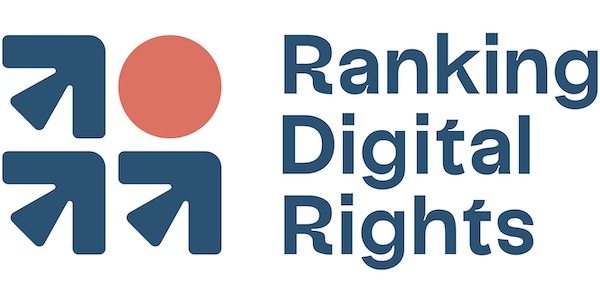| Digital Asia Hub has been partnering with Ranking Digital Rights (RDR) to advance corporate accountability in South-East and East-Asia by ranking selected corporate actors for their commitments to human rights. With much of the digital public sphere mediated by corporate technology businesses, it is imperative to understand how their business models square with consequences for human rights. |
| Towards this end, DAH, along with Open Culture Foundation, Taiwan and Open Net Korea, South Korea are evaluating corporations involved in emerging technologies using RDR’s methodology. We caught up with the project lead, Nayantara Ranganathan, to learn more about what she’s been up to and her work on the project. |
| Ranking Digital Rights is an ambitious global project. Could you speak more to the importance and significance of the project being a coordinated global effort? N: Technology businesses are not so adamant anymore on portraying themselves as neutral actors. They see the importance of acknowledging the possibility of harm that their products and practices bring, if only because demonstrating responsibility helps keep regulators away. So companies want to be seen as doing responsible things, and want to have a public image that paints them as sensitive to the consequences of their operations. They also want to be industry leaders in accountability etc. So in a way the RDR corporate accountability project leverages this competitiveness and tracks companies’ commitments to privacy, freedom of expression etc. Bringing as many companies into this net of scrutiny, which includes systematically archiving ever-changing policies, comparing regional differences in treatment of users etc., strengthens the overall effectiveness of the effort. What are some of the challenges of adapting the processes to contexts in Asia? What has it taught you about the digital rights space in the region? N:I think it’s a bit premature to say for certain. I wouldn’t say it’s a challenge, but we could perhaps use a different framework than how traditionally concerns around data have been articulated. For example, in many Asian countries, it’s important to keep in mind that the kind of push that exists to “accelerate” the data economy, to produce and monetise data, is different from the imperatives in North-American or European contexts. What that practically means is that there is a lot more experimentation with people’s data, when it comes to say, loan products in fintech, for example. This means that we might need to look beyond frames of privacy or freedom of expression to articulate dangers that people face from the practices of technology businesses. You have worked on interdisciplinary projects on feminist politics of data and gendered surveillance. Can you share more about how these perspectives can help thinking around several of the major governance challenges around data and the Internet? N: There are fundamental issues with how data is thought of in popular media, within the law etc, where data becomes a standard to which people have to measure up to. Many governance challenges emerge because of treating people as data points, and allowing unchecked business models that are extractive of people’s lives. I think the most important perspective that these projects have brought is to dismantle the idea of a neutral, passive, inert data subject, who is nameless, faceless, disembodied and needs to be acted upon. What is the last book you’ve recently read for leisure? N: Breasts and eggs by Mieko Kawakami. It brought me back to fiction after a long time, and I highly recommend it! What are the spaces on the Internet that you go to explore, learn, and find communities? N: To be very honest, I have capitulated to corporate social media as my primary internet space to go to. Any needs for community I find mainly outside the internet. |
Latest posts by DAH Staff (see all)
- Platform Futures Roundtable Series - January 27, 2023
- Interview with Haiqing Yu: Automated Decision Making in China & Researching “Global China” - January 24, 2023
- A Year in Review: 2022 at the Hub - December 27, 2022


